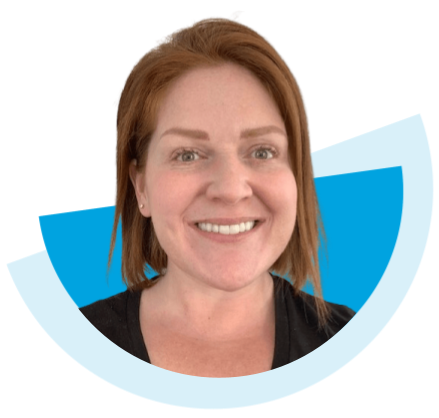A Behind-the-Scenes Look at Our Part-Time Coding Bootcamp
Have you ever dreamed of becoming a full-stack engineer but struggled to find a way to fit it into your busy schedule?
Tech Elevator’s Part-Time Program is designed for individuals who are unable to leave their full-time commitments but still have the drive to pursue a career in software development. And now, we’re excited to give you a sneak peek into this transformative journey!
In this exclusive video, you’ll get a chance to meet some of the incredible individuals who have successfully completed our Part-Time Program and transitioned into fulfilling careers in the tech industry. We’ll introduce you to Jonathan Funk, our esteemed Part-Time Instructor, and Meredith Denbow, the dedicated Program Director who ensures a seamless learning experience for all our students.
What truly makes this video special are the stories of our amazing alumni.
Meet Sugey Fiello, a former social worker and single mom who decided to take the leap into the tech world. Sugey shares how she managed to balance her full-time job and responsibilities while dedicating time to study independently and attend class. With just four hours a week of instruction, Sugey discovered a whole new way of thinking, stepping outside of her comfort zone and embracing the challenges of coding. She credits our Pathway Program for giving her the skills and confidence to excel in job interviews and secure a position as a software developer with the Illinois government. The job market may have seemed daunting, but with the support of her Pathway Coach and access to exclusive job postings, Sugey found the opportunity she deserved.
We also introduce you to David Basehoar, a former manager and college student who realized that traditional education didn’t quite help him meet his career aspirations. David shares how Tech Elevator provided him with not only technical skills in full-stack development but also a fresh perspective on problem-solving and innovation. Through our immersive hands-on curriculum, David gained the practical experience and application-based knowledge that made him stand out to employers. Today, he is thriving as a junior developer at Spherexx and enjoying the financial freedom and countless opportunities that his new career path has brought him.
Our Part-Time Program isn’t just about learning to code; it’s about opening doors and transforming lives.
With our flexible schedule and expert guidance, you can pursue your passion for technology without sacrificing your other obligations. So, are you ready to take the next step?
Don’t miss out on this eye-opening behind-the-scenes video that showcases the experiences of our Part-Time Program alumni. Witness their journey of growth, determination, and success as they embrace a new world of possibilities. Get inspired and discover how the Tech Elevator Part-Time Program can help you unlock your potential as a skilled software developer.
Watch our exciting new video and join us on this incredible adventure!

Written by: Meredith Denbow, Part-Time Program Director, Tech Elevator